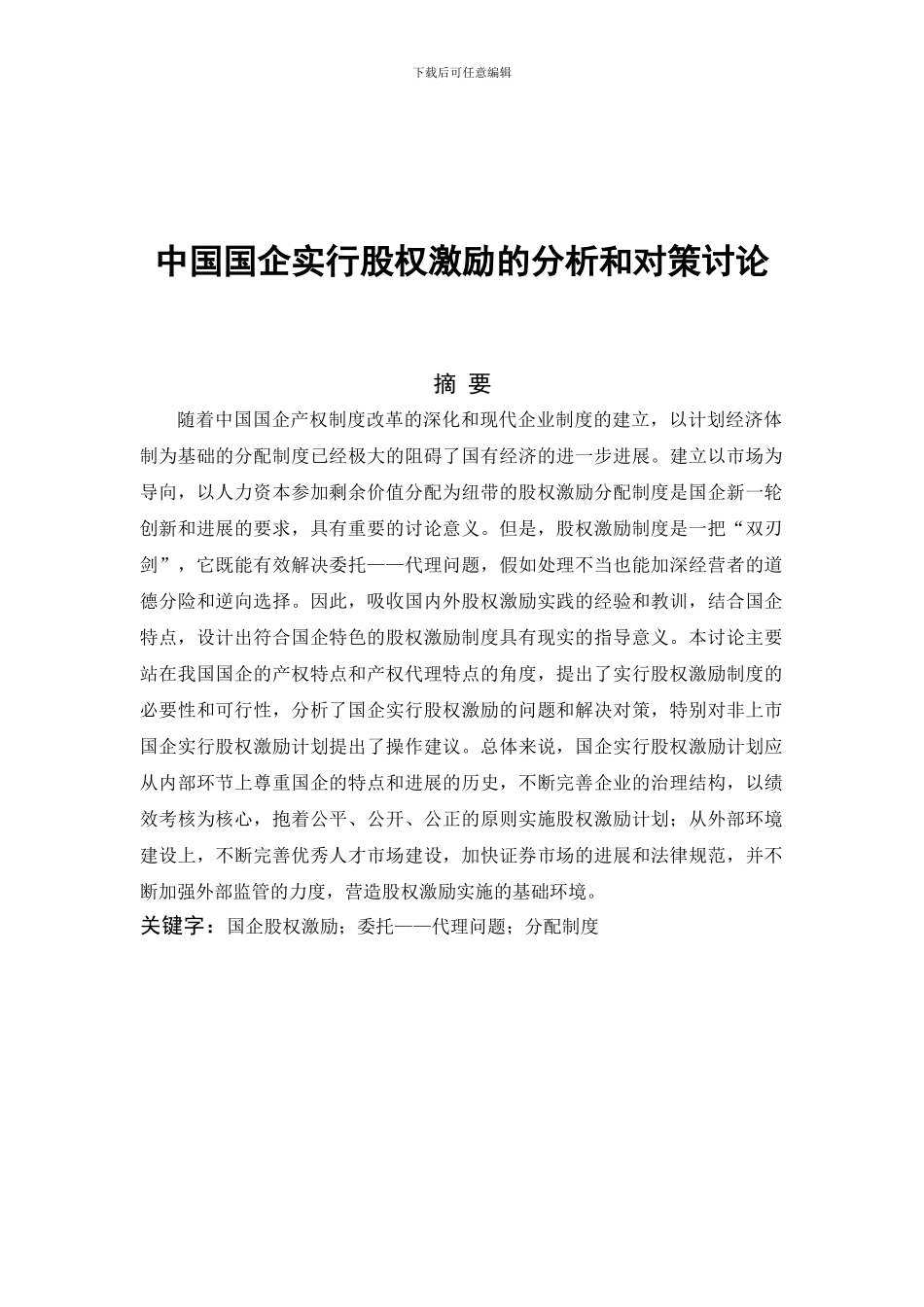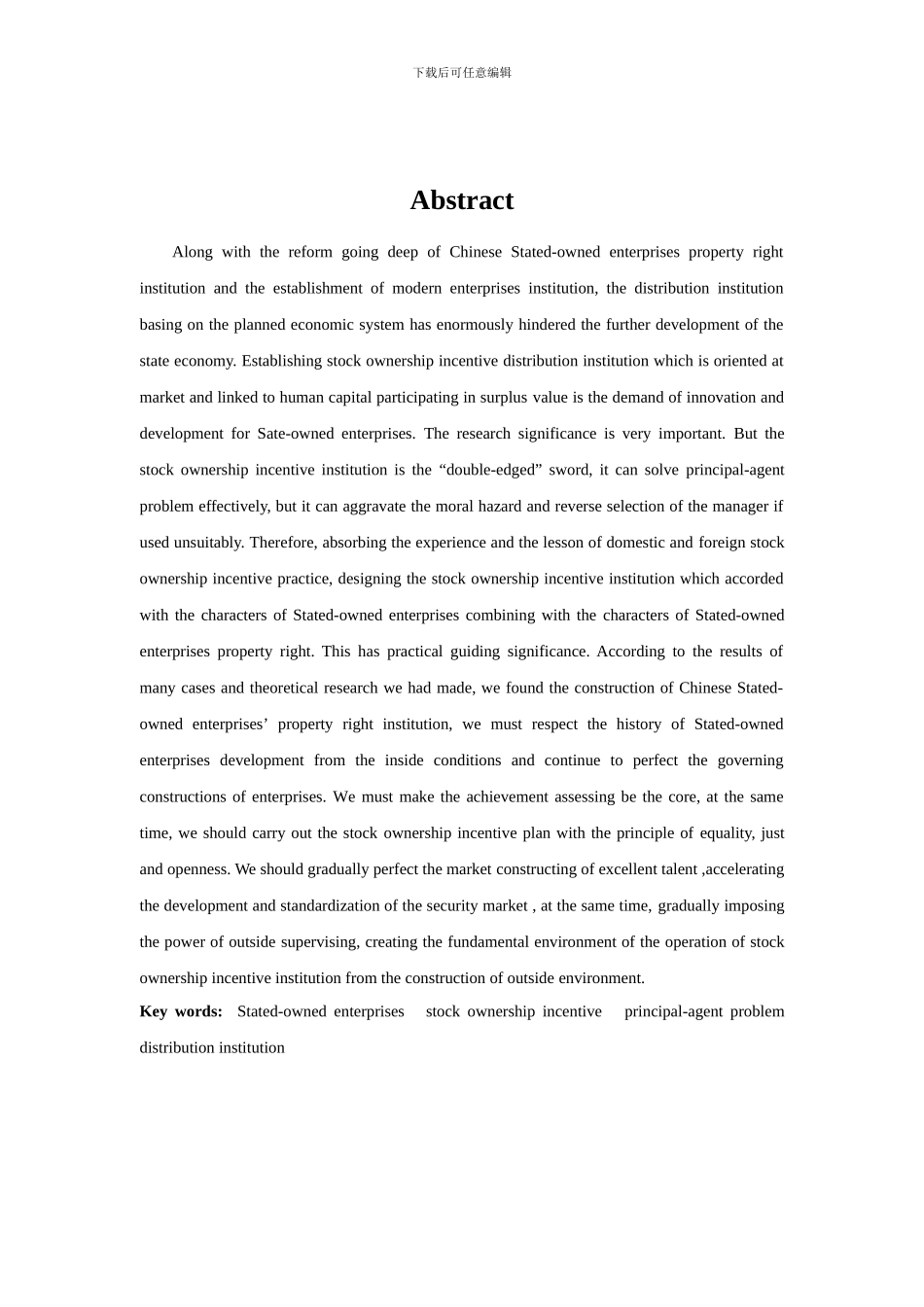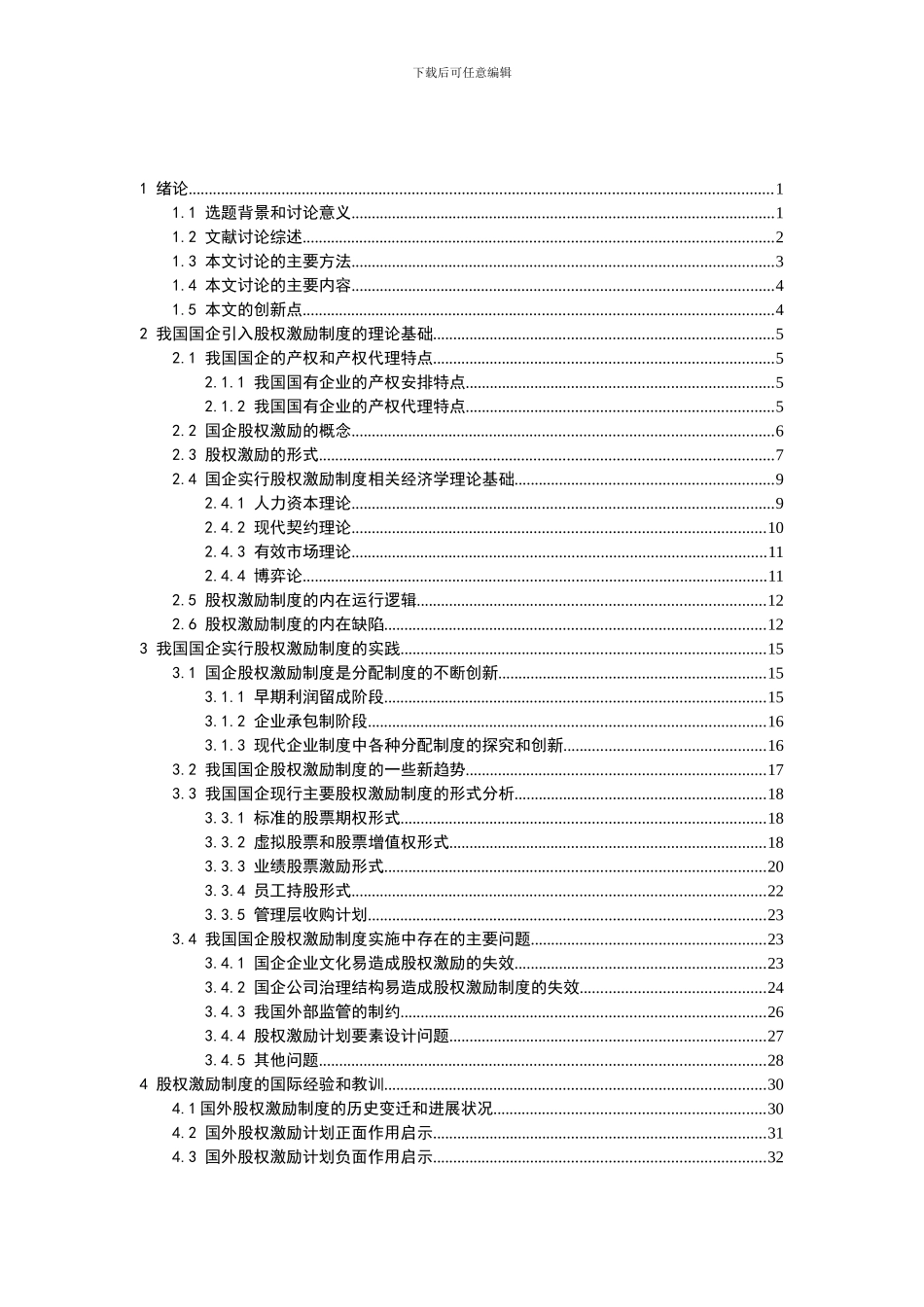下载后可任意编辑中国国企实行股权激励的分析和对策讨论摘 要随着中国国企产权制度改革的深化和现代企业制度的建立,以计划经济体制为基础的分配制度已经极大的阻碍了国有经济的进一步进展。建立以市场为导向,以人力资本参加剩余价值分配为纽带的股权激励分配制度是国企新一轮创新和进展的要求,具有重要的讨论意义。但是,股权激励制度是一把“双刃剑”,它既能有效解决委托——代理问题,假如处理不当也能加深经营者的道德分险和逆向选择。因此,吸收国内外股权激励实践的经验和教训,结合国企特点,设计出符合国企特色的股权激励制度具有现实的指导意义。本讨论主要站在我国国企的产权特点和产权代理特点的角度,提出了实行股权激励制度的必要性和可行性,分析了国企实行股权激励的问题和解决对策,特别对非上市国企实行股权激励计划提出了操作建议。总体来说,国企实行股权激励计划应从内部环节上尊重国企的特点和进展的历史,不断完善企业的治理结构,以绩效考核为核心,抱着公平、公开、公正的原则实施股权激励计划;从外部环境建设上,不断完善优秀人才市场建设,加快证券市场的进展和法律规范,并不断加强外部监管的力度,营造股权激励实施的基础环境。关键字:国企股权激励;委托——代理问题;分配制度下载后可任意编辑AbstractAlong with the reform going deep of Chinese Stated-owned enterprises property right institution and the establishment of modern enterprises institution, the distribution institution basing on the planned economic system has enormously hindered the further development of the state economy. Establishing stock ownership incentive distribution institution which is oriented at market and linked to human capital participating in surplus value is the demand of innovation and development for Sate-owned enterprises. The research significance is very important. But the stock ownership incentive institution is the “double-edged” sword, it can solve principal-agent problem effectively, but it can aggravate the moral hazard and reverse selection of the manager if used unsuitably. Therefore, absorbing the experience and the ...


